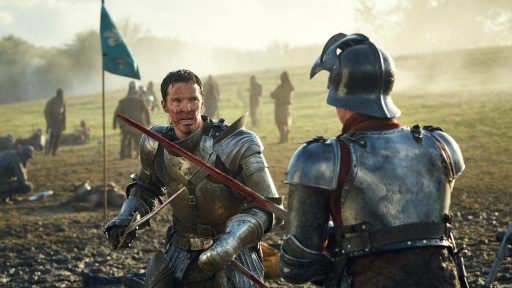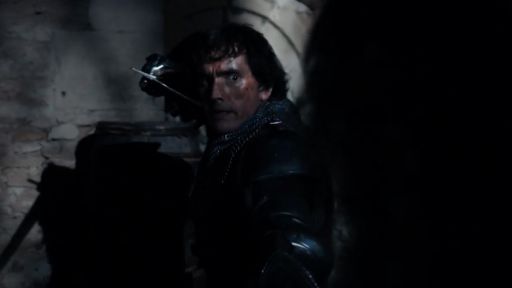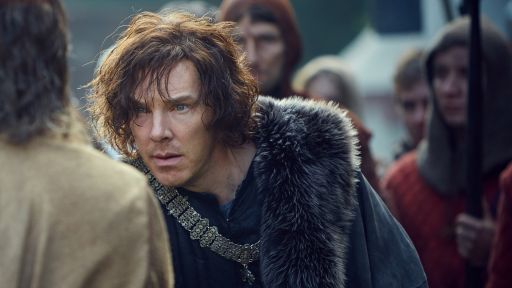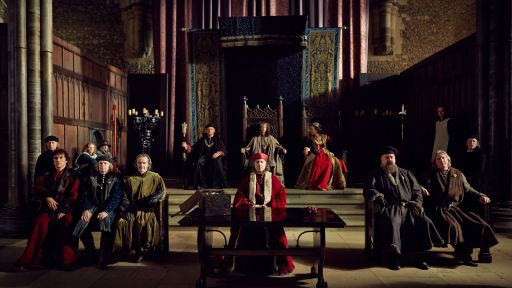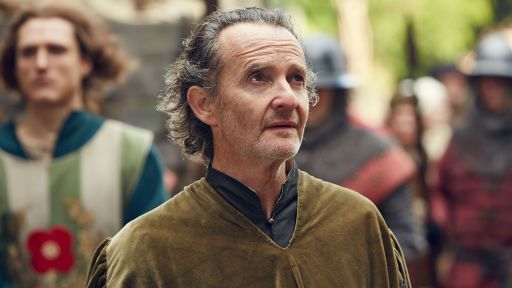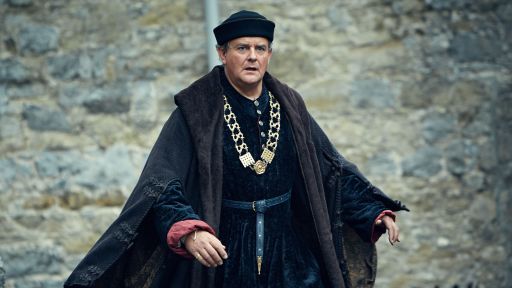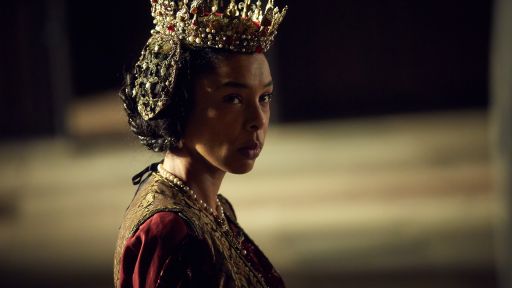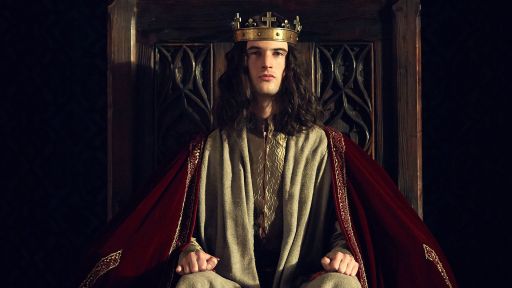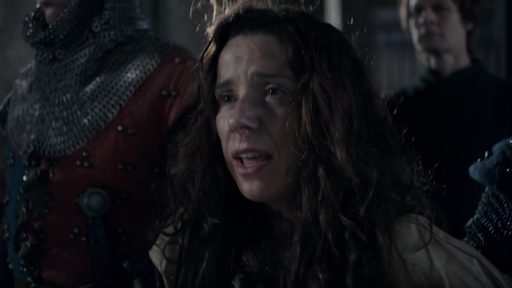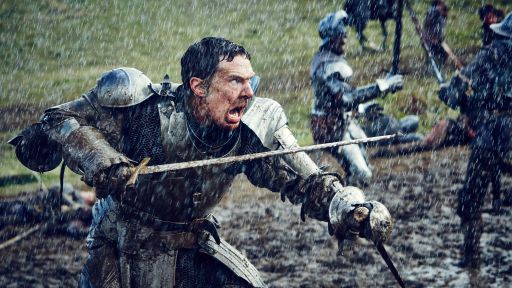
Could you summarize your character?
My character Warwick is a warrior but also a politician, so there’s a fantastic combination at play for me, in that I get to do all the fighting but I get to be political as well.
Warwick switches sides in these stories. It’s a fantastic thing that Shakespeare has written. He’s written the most loyal of men, who changes sides. What’s great about this work is all the layers and the complexity. It’s much more an act of puzzle-solving and less an act of invention. A script for camera can be quite flash and quite straightforward, but The Hollow Crown isn’t like that. There’s a history to every character. That’s the joy of this material.
How did you get involved in The Hollow Crown: The Wars of the Roses?
It came to me through Dominic. He rang me up and asked me if I wanted a part. I read the three scripts and of course, I immediately wanted to do it because they’re fantastic. I started the year playing Kent in King Lear, directed by Sam Mendes. So I started the year with Shakespeare and I’m ending it with The Hollow Crown. It’s been my year of Shakespeare!
Were you familiar with the plays before?
As far as Will Shakespeare is concerned, he’s the reason I became an actor. I came over to the RSC as a boy on school trips, and I saw a production of The Taming of the Shrew. I just looked and thought, ‘I want to do that, I want to do it. I want to be in that.’
It was a combination of the exciting action of Jonathan Price kicking the whole set down and the language being used. People laughing at four-hundred-year-old jokes – that’s brilliant. So here I am, finally, in it!
Does Shakespeare’s language feel the same regardless of the play?
My experience of it is of a riddle, which you want to solve, looking at the best way to run the rhythm out, the best way for meaning. There are keys to unlock the meaning, such as the rhythm of the line. If a word is unfamiliar I have to look it up. I visualise the meaning of the word when I’m performing and speaking the obscure word. I decide what part of the word I want to hit, and how to express what’s happening to that character. Ultimately, it’s meaning and communication. How do I make this set of sounds communicate? That’s your yardstick.
What kind of collaborator is Dominic?
He’s gold dust, really. He comes in and he might give you a little technical note. He might say, you’ve got to pronounce the ‘ed’ at the end of the word for the metre to run, and you find when you put that little flick in at the end, the whole line runs better. He gives me a point of concentration, for example, ‘Remember that you’ve been working your whole life to achieve this and now it’s here. Think about that the next take.’ Suddenly the line comes out of you and it feels like you’re saying it. Dominic makes you feel like you’re saying it, which is the greatest gift of all.
The Wars of the Roses were a family feud. Does that make the emotion all the more relatable?
The story is a combination of family and politics, which makes the stew very rich. It’s about fathers and sons. I don’t think there’s any family in the stories, which isn’t dysfunctional in some way, which you then couple with power and money.
Do you feel the history of the locations where you’re shooting?
Yes. The dip in the step that you walk over. The sway of the timber in the roof. The views, the aspects. Because all the buildings are old, they get the best views. They were the first to be built there. Looking out from Dover Castle, you feel the history. You’re in the place that people were in when they made these actions. It’s extraordinary.

